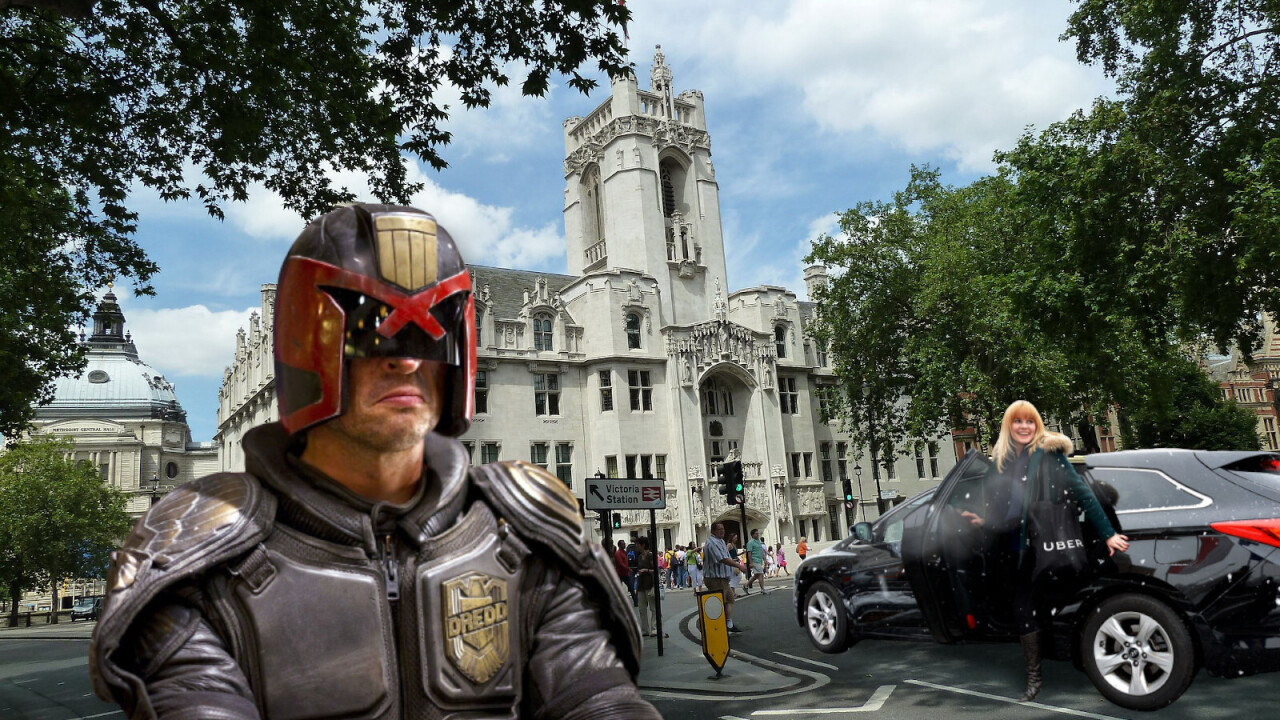
The saga of whether Uber and other gig-working drivers are full-time employees or independent contractors is never-ending. However, in the UK, the story has passed a crucial milestone.
As the UK supreme court has ruled today, Uber must classify its drivers as workers. As a result it must provide forms of employee benefits such as a minimum wage and holiday pay, BBC reports.
This appears to be the final ruling for Uber in the United Kingdom. The “not a taxi-firm” ride hailing service has already appealed three previous court decisions in the UK, all of which said that drivers should not be considered independent.
With the latest ruling coming from the nation’s supreme court, there’s nowhere left for Uber to appeal. The courts ruling says a driver should be considered working not just when driving a passenger, but when they are logged into the app.
[Read: How do you build a pet-friendly gadget? We asked experts and animal owners]
As cited by the Beeb, the court backed up its decision citing four key factors, if ever you needed a clear description of why drivers should be considered workers here they are:
- Uber sets the fare, in other words, it controls how much drivers earn.
- Uber dictates its contract terms, drivers don’t get a look in on these.
- Ride requests are controlled by Uber, the company can delegate work and penalize drivers that don’t accept requests.
- Uber has the power to remove a driver from its platform if their reviews are bad.
While Uber does afford drivers a huge amount of flexibility and control over when they work, the bits that really matter when it comes to running a business are controlled and run by the ride-sharing firm.
Under Uber’s iron fist, drivers are not independent workers, free to dictate the exact terms of how they work, what they earn, and how they handle complaints. They are subordinates in the gig-work empire, or if you prefer something more visceral, they are exploited workers.
Earlier this week, Uber outlined its plans to bring its California-oriented “Prop 22” standards for gig-work to the EU. While the UK is no longer part of the European Union, its supreme court’s ruling sets an undeniable precedent that’s at odds with the ruling from the US last year.
Last November, US voters passed Prop 22 in California meaning that firms reliant on gig-workers, like Uber, Lyft, and DoorDash, don’t have to pay a full suite of employee benefits like health care, paid sick leave, and holiday pay. But they do give drivers some perks they didn’t have previously, you can read more about that here and here.
Ultimately, Prop 22 is still weighted in Uber’s favor. However, in the UK it has no such fall back, and speculation is mounting as to how Uber will continue to operate in the country now that it has to front the operating costs that it should have been paying all along.
It could lead to increased costs for riders, or Uber will face an even longer uphill slog to that elusive goal: profitability.
Update Monday February 22, 2021, 0755UTC: The original version of this article said that Uber drivers are classed as employees. This is ambiguous, the correct legal term is “workers.” The article has been updated to reflect this.

Get the TNW newsletter
Get the most important tech news in your inbox each week.





